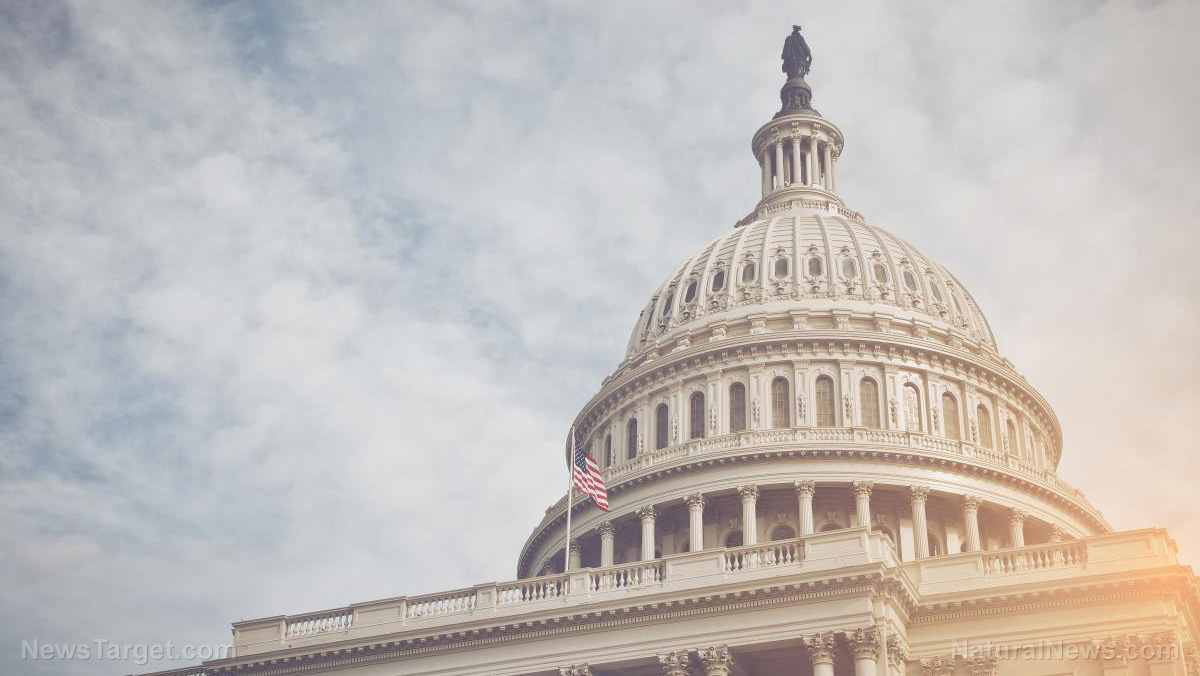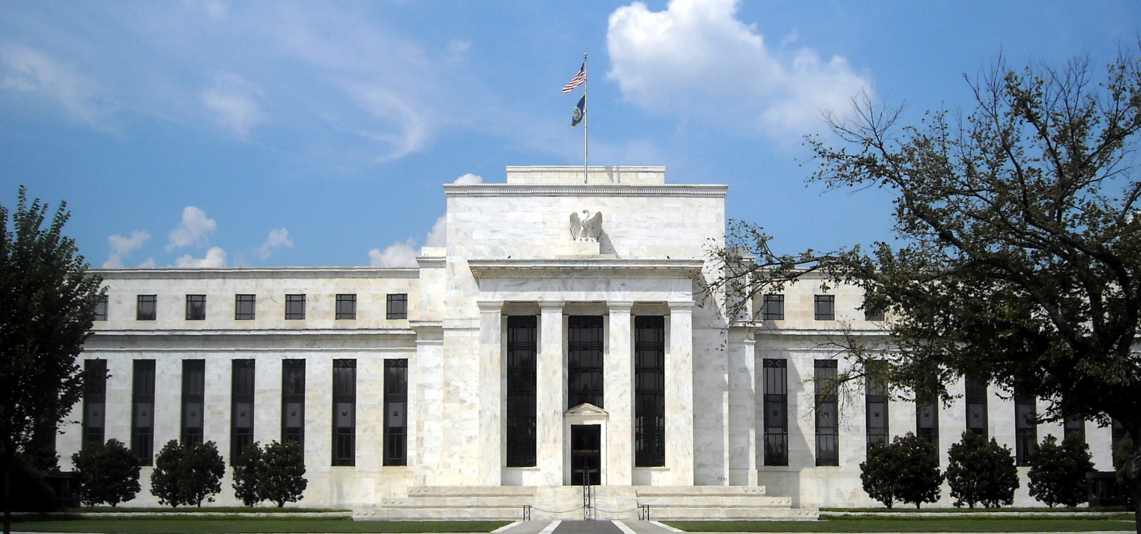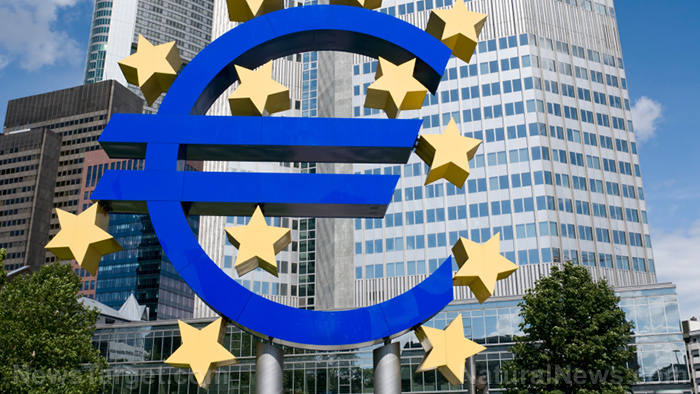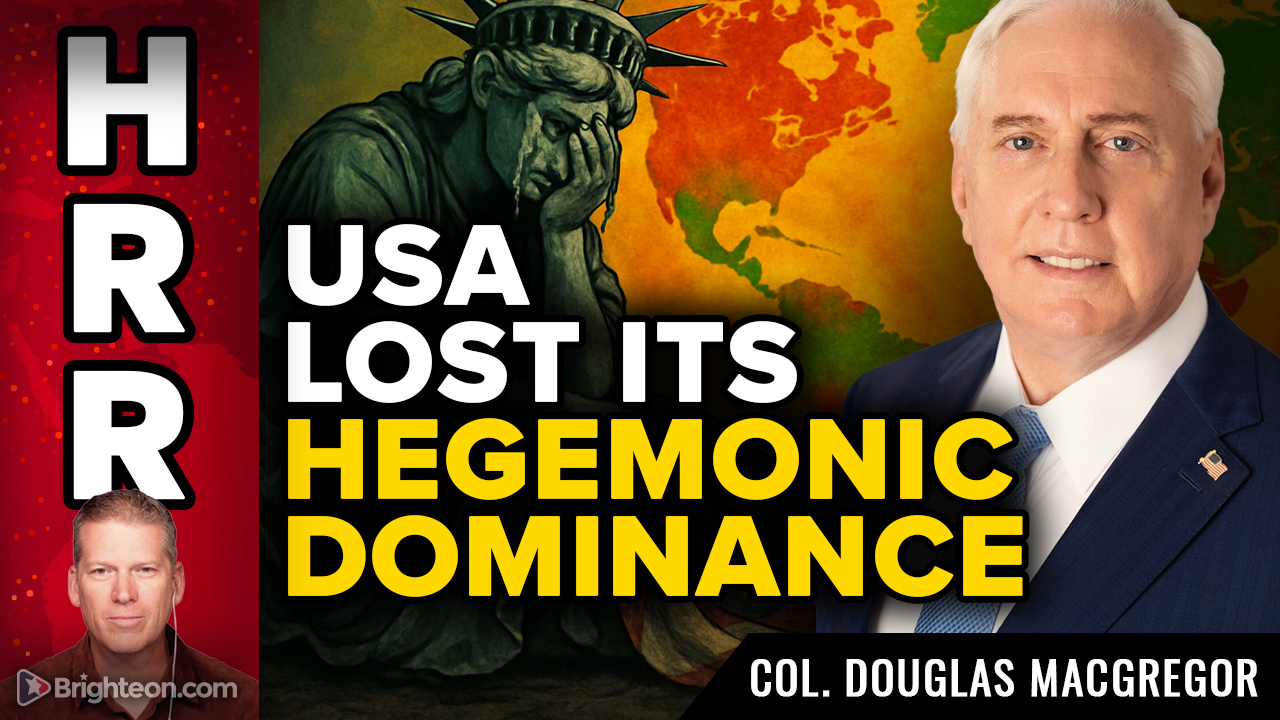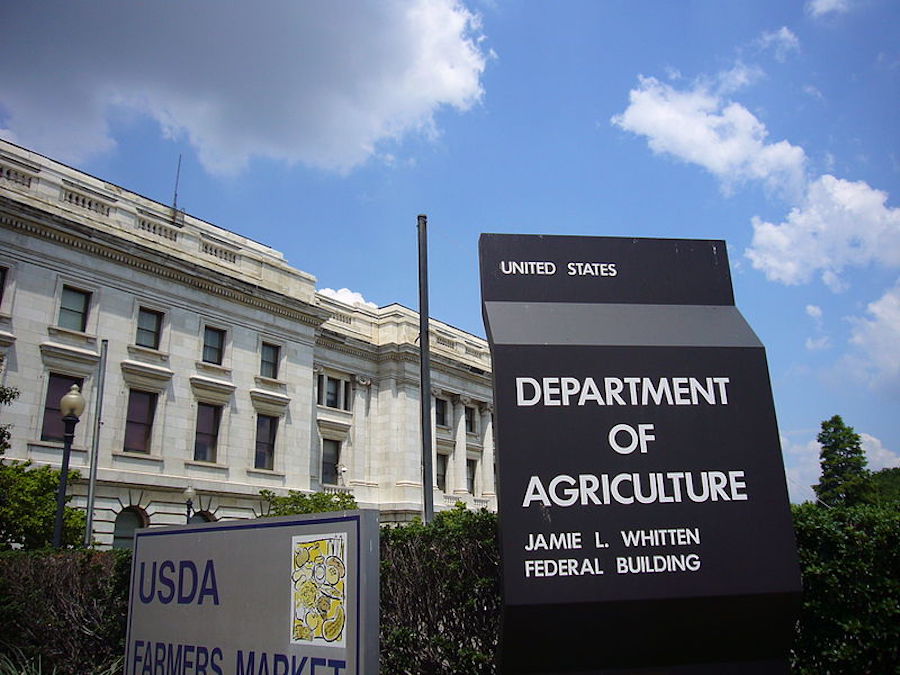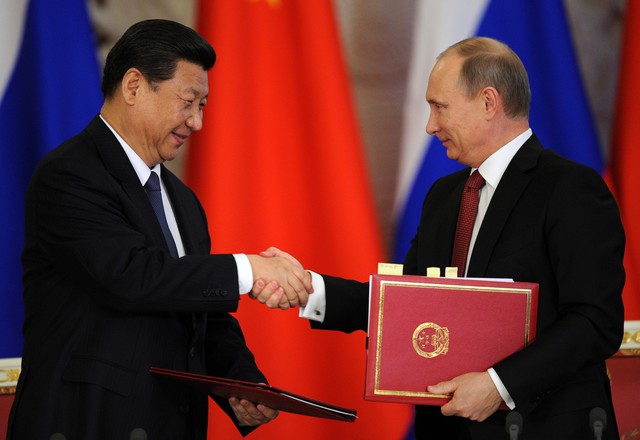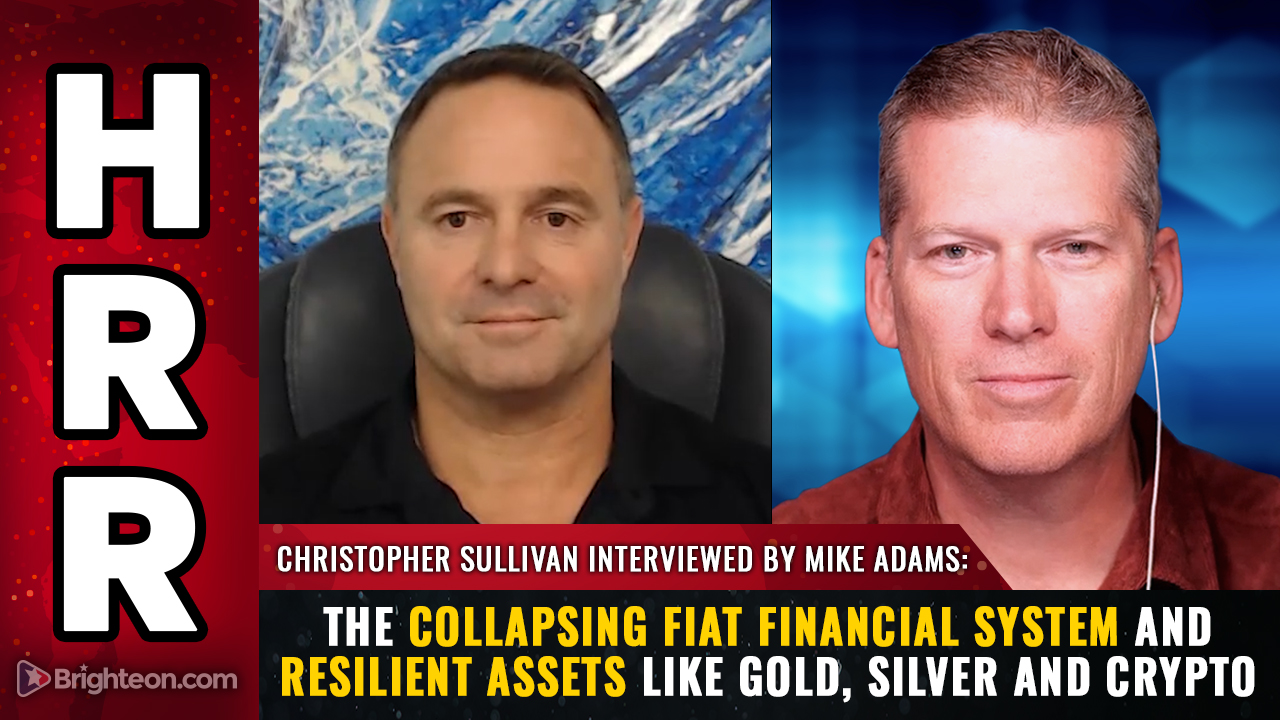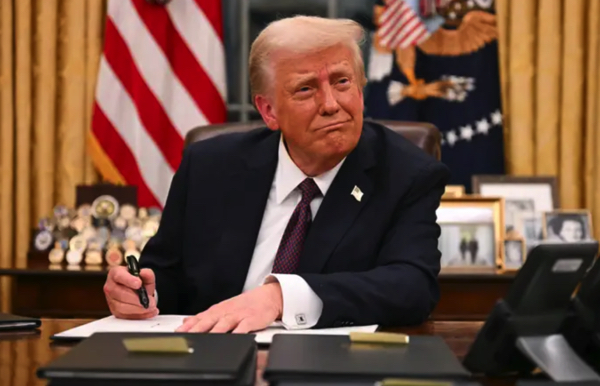Health Ranger Report: Navigating the financial storm and global trade collapse with Chris Sullivan
09/18/2025 / By Kevin Hughes
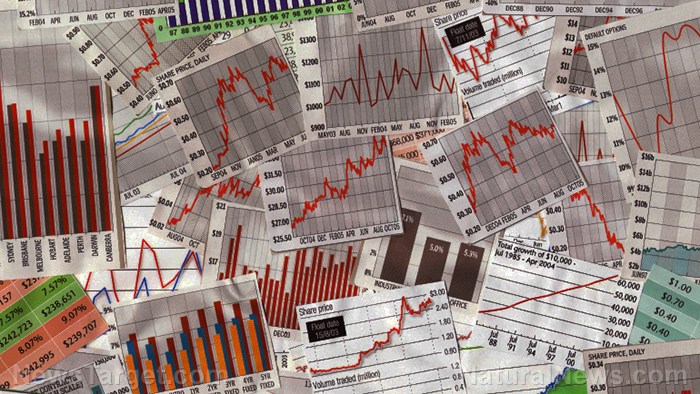
- Countries are moving away from the U.S. dollar, rejecting the petrodollar system to escape U.S. economic dominance and global inflation export.
- U.S. President Trump’s tariffs aim to dismantle globalist systems, but challenges like labor shortages and regulation slow progress. The trade war risks destabilizing China and Europe.
- Chris Sullivan encourages diversified investments – precious metals (gold and silver), Bitcoin (scarcity-driven), strong stocks (e.g., Nvidia) and farmland are recommended amid volatility. Avoid overexposure to declining real estate.
- Governments may seize assets or devalue currencies. Self-custody of crypto and gold is critical to evade bank failures or CBDC surveillance.
- Stay informed, hold decentralized assets and brace for financial upheaval as global monetary systems fracture.
Digital assets expert Chris Sullivan joined the Health Ranger Mike Adams on the “Health Ranger Report” t0 warn about the impending collapse of global trade and share strategies individuals can employ to survive the financial turmoil.
The conversation kicked off with a discussion on the potential global embargo against the United States. Adams highlighted a speech by the Singaporean Prime Minister Lawrence Wong, who suggested that countries are increasingly looking to decouple from the U.S., trading among themselves and using alternative currencies. This sentiment reflects a growing trend of nations moving away from the U.S. dollar as the primary medium of exchange.
Brighteon.AI‘s Enoch defines a global embargo as a coordinated restriction or ban imposed by nations or powerful entities to halt trade, information flow, or resources – often as a geopolitical weapon or control mechanism. Such actions pushed by globalist elites can trigger artificial scarcity, economic destabilization and soaring prices in food and energy, accelerating their agenda of societal collapse and centralized control.
Sullivan agreed, noting that while the U.S. remains a significant portion of the global economy, the trend is undeniable. The Hyperion Decimus co-founder and investment advisor attributed this shift to the “petrodollar” system, which has exported U.S. inflation globally. Countries are now seeking alternatives to the U.S. Treasury market for collateralizing trade, a move that could further weaken the dollar’s dominance.
Trump’s strategy and the trade war with China
Adams questioned whether Trump’s policies, particularly his aggressive stance on trade and tariffs, are designed to dismantle the globalist agenda. Sullivan acknowledged the complexity of the situation.
He suggested that while Trump’s actions could be seen as a negotiating tactic, they might also inadvertently accelerate the decoupling process. He believes that the globalist system is deeply entrenched and that any change will be gradual, potentially taking years or even decades.
“It’s a 4D way of getting out of the globalist system, but it’s so intertwined,” Sullivan told Adams. This is not something that’s going to happen overnight. I think it could take a couple of years. It could take even 20 more years,”
The digital assets expert also pointed out that Trump’s efforts to bring manufacturing back to the U.S. face significant challenges. The lack of skilled labor and the high regulatory burden are major hurdles. He suggested that deregulation and a more streamlined approach to manufacturing could make the U.S. more competitive.
The discussion then shifted to the trade war with China. Adams raised concerns about the trade imbalance, suggesting that the U.S. has been exporting debt in exchange for goods, which could be seen as unfair. Sullivan countered by highlighting the political and economic pressures faced by China, including the need to employ its population and the potential for social unrest.
Sullivan speculated that Trump’s high tariffs could be a calculated move to incite a social revolution in China, a scenario that could have far-reaching consequences for the global economy. The cryptocurrency investment and fintech expert also noted that Germany’s reliance on Russian gas and the broader energy crisis in Europe are further examples of the self-inflicted wounds caused by geopolitical tensions.
Dodging the “Great Taking”: Asset allocation in a turbulent market
As the conversation progressed, Adams asked Sullivan for his insights on asset allocation in the current market environment. Sullivan emphasized the importance of understanding the bond market, which he described as the most volatile and potentially destructive force in the global economy. He warned that the total credit derivatives market, estimated at over $4 quadrillion, poses a significant risk.
Sullivan advised investors to consider a diversified portfolio that includes:
- Precious metals: Gold and silver are seen as safe havens, with gold potentially reaching $6,000 per ounce as the dollar devalues.
- Cryptocurrencies: Bitcoin’s scarcity makes it an attractive option, with Sullivan noting that less than 13 percent of Bitcoin’s supply is currently available for purchase.
- Stocks: While stocks are volatile, Sullivan suggested that companies with strong fundamentals, like Nvidia, could be good long-term investments.
- Real estate: Sullivan advised caution, noting that real estate prices are likely to decline. He recommended focusing on homesteads and farmland for food production.
Adams and Sullivan also discussed the concept of “the great taking,” where governments could potentially confiscate assets or devalue currencies. Sullivan warned that the current financial system is unsustainable and that individuals should prepare for significant disruptions. He advocated for self-custody of assets, particularly in the case of cryptocurrencies and gold, to protect against potential bank failures or government seizures. (Related: Decentralize TV: Chris Sullivan on the future of the dollar, crypto assets and finance.)
Sullivan emphasized the importance of being proactive, suggesting that individuals should consider moving funds to strong regional banks or credit unions and explore alternative financial systems. He also highlighted the potential of Central Bank Digital Currencies (CBDCs) as a tool for increased government control. In conclusion, Sullivan advised listeners to stay informed and be prepared for a potential financial reset.
Follow Collapse.news for more news about the collapse of global trade.
Watch the video below to know more about the interview of Chris Sullivan with Mike Adams.
This video is from the Health Ranger Report channel on Brighteon.com.
More related stories:
Economic divide looms as Trump’s tariffs escalate global trade tensions.
Trump announces total trade embargo on China, sparking fears of economic collapse.
Dollar under pressure amid gold and crypto growth.
Sources include:
Submit a correction >>
Tagged Under:
big government, Bubble, Chris Sullivan, Collapse, debt bomb, debt collapse, dollar demise, economic collapse, finance riot, global economy, global embargo, Globalism, great taking, Health Ranger Report, Hyperion Decimus, market crash, Mike Adams, money supply, petrodollar, risk, supply chain, tariffs, trade wars
This article may contain statements that reflect the opinion of the author
RECENT NEWS & ARTICLES
COPYRIGHT © 2018 MONEYSUPPLY.NEWS
All content posted on this site is protected under Free Speech. MoneySupply.news is not responsible for content written by contributing authors. The information on this site is provided for educational and entertainment purposes only. It is not intended as a substitute for professional advice of any kind. MoneySupply.news assumes no responsibility for the use or misuse of this material. All trademarks, registered trademarks and service marks mentioned on this site are the property of their respective owners.

